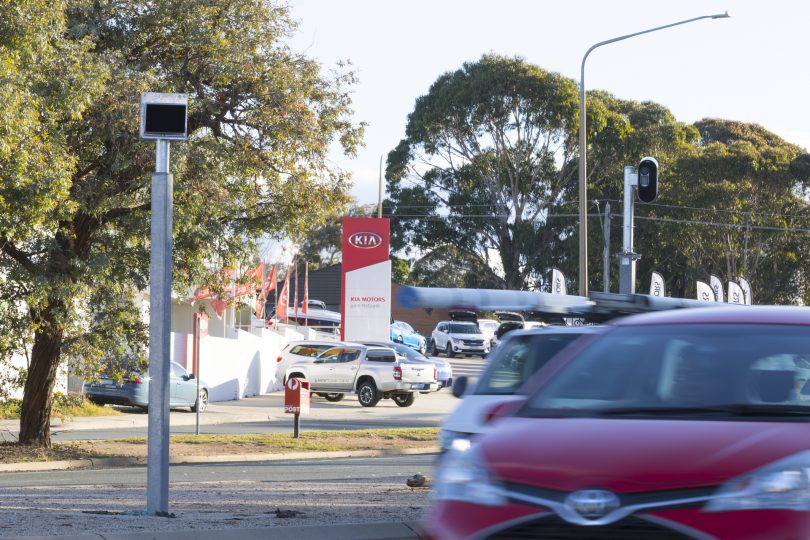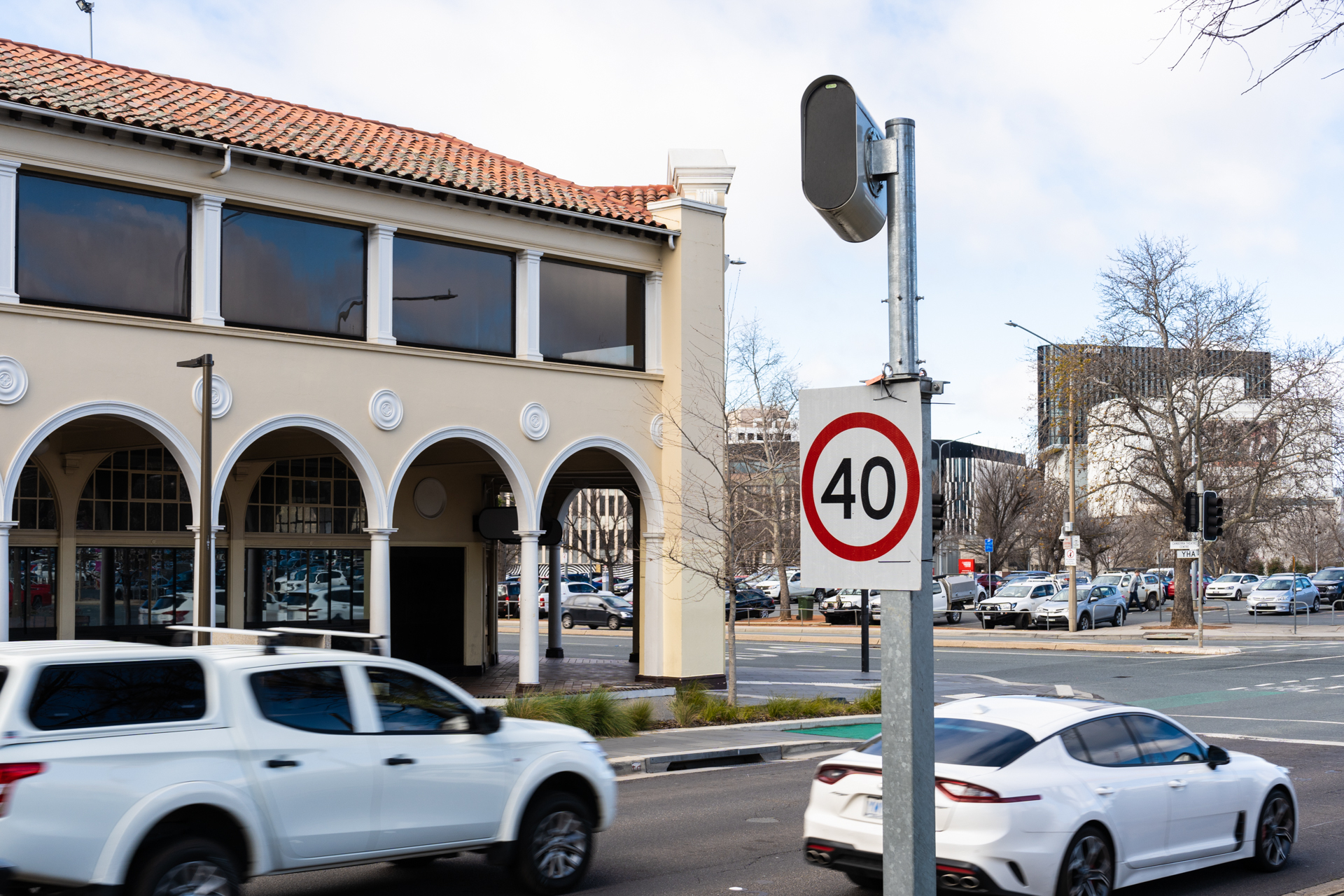
An ACT Magistrate has ruled in favour of a motorist whose speeding infringement was issued with the wrong date. Photo: File.
Drivers who have been snapped speeding by traffic cameras in the ACT may be able to challenge the validity of their ticket following a landmark ruling in the ACT Magistrates Court on Friday (14 May).
It’s all down to a failure by the Road Transport Authority to recognise leap years, creating an opportunity for hundreds of fines to be reversed.
Dennis Levy, an engineer from Braidwood, challenged a speeding fine he received for an offence on 16 March 2020 as the infringement notice had the incorrect date of 17 March.
The traffic camera detected Mr Levy travelling at 92 km/h in an 80 km/h speed zone.
Magistrate James Lawton ruled in Mr Levy’s favour, saying the RTA forced people to pay an infringement notice that didn’t occur as alleged, or face prosecution.
Magistrate Lawton said that the RTA had the authority to correct the issue and resolve the problems it created but had not done so for “some inexplicable reason”.
The ruling sets a legal precedent for other motorists to challenge the validity of their fines.
The date discrepancy was created by the automatic system’s failure to account for 2020 as a leap year and resulted in almost 600 incorrectly dated infringement notices between 29 February and 13 March last year.
The government said it had rectified the problem by 13 March, three days before the infringement was issued to Mr Levy with the incorrect date.
The government maintained that the fines were valid in the lead up to Friday’s hearing.
NRMA NSW/ACT spokesman Peter Khoury previously called for an audit of the ACT’s traffic cameras when Access Canberra admitted to the discrepancies in September last year.
He said the automated system needed to be flawless for motorists to have full confidence in it.

Transport Minister Chris Steel introduced legislation to bring mobile phone detection cameras to the ACT last week. Photo: Dominic Giannini.
The decision was handed down just days after the ACT Government introduced new legislation to pave the way for mobile phone detection cameras in the Territory.
Fines and demerit points will also increase under the new laws, jumping to $589 and four demerit points from $480 and three demerit points.
Transport Minister Chris Steel said the amendments to the Road Transport Act would improve safety on ACT roads by enabling the new cameras. Drivers who use mobiles while driving are 10 times more likely to crash.
“The risks of using a mobile device while driving are significant and undeniable,” Mr Steel said.
“Driving while using your mobile device is as dangerous as drink driving, yet every day too many Canberrans put themselves and others at risk by doing it.”
The mobile phone detection cameras are expected to become operational by late 2021 or early 2022, depending on the tender process. However, motorists will receive a three month grace period from when the cameras are rolled out.
ACT Policing issued more than 1000 infringement notices and 190 cautions for mobile phone use while driving last year.
Original Article published by Dominic Giannini on The RiotACT.





